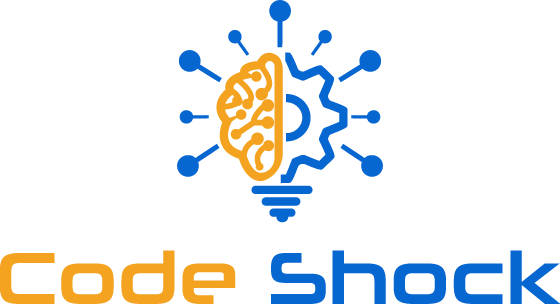Considering a career in JavaScript development is a smart move. The demand for developers is high, and many jobs are available. This field offers a rewarding and rich professional path.
JavaScript is key in today's web development. It powers sites and apps to be interactive. JavaScript developers are crucial in creating the digital world.
To do well as a JavaScript developer, you need the right skills and tools. This article talks about essential software engineering tools. They help with productivity, make better code, and ease development.
These tools are vital, no matter your experience level in JavaScript programming. Getting to know these tools will help you succeed. Let's get started!

Key Takeaways:
- A career in JavaScript development offers numerous job opportunities in the growing tech industry.
- JavaScript is a powerful programming language used for creating interactive websites and web applications.
- Knowing and utilizing essential software engineering tools is crucial for JavaScript developers to improve efficiency and code quality.
- Mastering these tools will help JavaScript developers stay competitive in the job market and advance their careers.
- Continual learning and professional development are important for keeping up with the ever-evolving JavaScript ecosystem.
Skills Required for JavaScript Development
JavaScript development offers many chances for those wanting to pursue a rewarding coding career. To shine in this fast-paced field, having a wide range of essential skills is important for JavaScript developers.
Proficiency in JavaScript Programming
Understanding JavaScript programming deeply is central to JavaScript development. Developers need to know JavaScript syntax, data types, functions, and object-oriented concepts well. Being skilled in JavaScript lets developers write clean, effective code and add complex features.
Understanding of Web Development Concepts
To do well in this area, developers must grasp web development concepts deeply. They should know HTML and CSS, and be familiar with APIs, HTTP protocols, and how clients and servers talk. Knowing about web development helps developers use JavaScript well in web apps and make great user experiences.
Familiarity with Front-end Technologies
Front-end technologies are key in JavaScript development, so developers need to know them well. They should be skilled in frameworks like Angular, React, or Vue.js. They also need to know how to design responsively, make apps work across browsers, and develop user interfaces. Using front-end technologies, developers can create web apps that are both interactive and look good.
Problem-solving Abilities
JavaScript developers face many challenges, and being good at solving problems is crucial. This skill helps developers fix code, solve issues, and find good solutions to tough problems. Having a logical and analytical mind helps developers overcome challenges and make excellent JavaScript apps.
With a strong base in JavaScript programming, deep knowledge of web development, skills in front-end technologies, and great problem-solving skills, developers can create a successful path in JavaScript coding.
Becoming a JavaScript Engineer
You can start your journey to becoming a JavaScript engineer once you've learned the skills. This section looks at the different jobs you can do in this exciting area. There are many chances for you whether you want to be a front-end developer, full-stack developer, or JavaScript architect.
Front-End Developer
Front-end developers make and set up the visual parts of a website or app. They work with designers to turn wireframes and mockups into working, interactive interfaces. Skills in HTML, CSS, and JavaScript are key, along with a good sense of design and user experience.
Full-Stack Developer
Full-stack developers can deal with both the front and back ends of a web app. They design and put in server-side logic, manage databases, and use APIs. A full-stack developer knows many programming languages, like JavaScript, Python, or Ruby. They are also skilled in different frameworks and tools.
JavaScript Architect
A JavaScript architect designs and manages complex JavaScript projects. They know a lot about JavaScript frameworks, libraries, and best practices. JavaScript architects work with teams to make sure the codebase can scale, perform well, and be easy to maintain. They're experts at building strong architectures and tackling tough tech problems.
“Becoming a JavaScript engineer opens up a world of possibilities in the software development industry. From creating visually stunning websites to architecting complex applications, the roles and responsibilities in this field are diverse and challenging.” - Alex Turner, Senior JavaScript Engineer
As a JavaScript engineer, you use your coding skills and creativity for great projects. You can focus on front-end development, be an all-around full-stack developer, or make big decisions as a JavaScript architect. This field gives you many chances to grow and develop in your career.
| Role | Responsibilities |
|---|---|
| Front-End Developer | Design and implement user interfaces, collaborate with designers, and ensure a seamless user experience. |
| Full-Stack Developer | Handle both front-end and back-end development, build server-side logic, and integrate with databases and APIs. |
| JavaScript Architect | Design complex JavaScript projects, create scalable architectures, and provide technical leadership. |
Educational Paths for JavaScript Developers
Exploring a career in JavaScript development? You have various educational paths to choose from. You can follow a traditional degree path or a more hands-on approach. Each option caters to different preferences and learning styles.
Computer Science Degrees: Considering a traditional computer science degree? It's a great foundation for JavaScript careers. You'll learn about software engineering, algorithms, and data structures. You'll also study JavaScript and other programming languages, giving you a robust technical foundation.
Coding Bootcamps: Want a quick, focused learning experience? Coding bootcamps emphasize practical skills and real-world projects. They are short and immersive, often helping students make industry connections. This can be a fast track into the JavaScript development field.
Online Courses: Online courses are a flexible way to learn JavaScript. Websites like Udemy, Coursera, and Codecademy offer courses for all levels. You can study at your own pace, fitting learning into your schedule.
Self-Study Resources: Prefer learning on your own? Many online resources, tutorials, and guides are available. Sites like MDN Web Docs provide detailed guides on JavaScript. This method lets you learn at your pace and explore topics that interest you.
“Choosing the right educational path is up to you. Think about your learning style, time, and budget. The key to success is consistent learning and practice in JavaScript.”
Comparison of Educational Paths
| Educational Path | Pros | Cons |
|---|---|---|
| Computer Science Degrees |
|
|
| Coding Bootcamps |
|
|
| Online Courses |
|
|
| Self-Study Resources |
|
|

Think about what you want and what you have when picking a path for your JavaScript career. A formal degree, a quick bootcamp, online courses, or self-learning can all work. Stay dedicated, practice often, and always grow your skills.
Building a Strong JavaScript Portfolio
In the world of JavaScript development, a strong portfolio is key for job success. It shows your skills and projects to potential employers. It lets hiring managers see your expertise and how well you'd fit in.
To build a standout JavaScript portfolio, follow these tips:
- Demonstrate a variety of projects: Show different kinds of projects. Highlight your skills in front-end frameworks, data use, or interactive design.
- Showcase real-world applications: Add projects used in real life. This shows your skills work in practical settings, which is impressive.
- Highlight your role and contributions: Explain what you did in projects. Whether leading a team or solving complex problems, share your achievements.
- Provide code samples: Let employers see your coding skills. Pick examples that show off your JavaScript knowledge, clean coding, and detail focus.
- Include testimonials and recommendations: Add positive feedback from clients or teammates. This backs up your skills and dedication.
- Make it visually appealing: Design a professional, eye-catching portfolio. Use high-quality visuals and interactive parts to showcase your projects.
A great JavaScript portfolio reflects your passion and commitment. Keep it current with new projects and polished presentations. This will not only help you get JavaScript jobs but also open up new opportunities in development.
Networking and Job Search Strategies
Networking is vital for JavaScript developers looking for job opportunities. Making connections in the industry can lead to new positions. It also keeps you updated on the latest trends. Here's how to network and find jobs as a JavaScript developer:
- Utilize Online Platforms: Join forums like GitHub, Stack Overflow, and LinkedIn. Share your knowledge and meet others in your field. This can lead to job opportunities.
- Attend Tech Conferences: Go to conferences and events for web development. This is a chance to meet others and learn about new technologies. Look for events like JavaScript Con and JSConf.
- Connect with Industry Professionals: Reach out to developers and recruiters on LinkedIn. Make your messages personal. This helps you learn about jobs and get referrals.
It's also important to have good job search techniques. Here are tips to help you find JavaScript developer jobs:
- Research Companies: Look for companies that interest you. Check their websites and job openings. Show how you fit their needs in your application.
- Build a Strong Online Presence: Keep an online portfolio that shows your JavaScript projects. Be active on Twitter and GitHub to show off your skills.
- Utilize Job Boards: Use job boards like Indeed and Glassdoor to find jobs. Use keywords to help your search. Check these sites often for new listings.
Using these networking and job search tips can help you find great opportunities. Remember, connections, knowledge, and skill showing are crucial. These steps can lead to success in JavaScript development.
Staying Up-to-Date with JavaScript Trends
Keeping up with JavaScript trends is key in web development. New tools and methods come up as technology changes. This helps you grow your skills, adapt, and stay ahead in the job market.
Resources, Blogs, and Online Communities
Many resources help you learn about JavaScript updates. Blogs and websites offer great articles and tutorials. Sites like Stack Overflow and Reddit let developers discuss and share knowledge on JavaScript.
It's important to understand why trends matter, their impact, and if they fit your career goals.
Attending Technical Conferences and Meetups
Conferences and meetups are great for meeting other developers and experts. They feature talks and workshops that provide fresh insights. These events help you learn, network, and stay updated.
Following Influential Developers and Thought Leaders
Follow top developers and leaders to keep updated. They share valuable information on platforms like Twitter, LinkedIn, and GitHub. This way, you can learn about the latest and future JavaScript trends.
Continuous Learning and Experimentation
To keep up, commit to learning and trying new things. Explore various technologies and coding methods. This approach makes sure you're ready for JavaScript development challenges.
Essential Software Engineering Tools for JavaScript Developers
As a JavaScript developer, having the right tools is key for your success. These tools boost productivity, make complex tasks simpler, and streamline how you develop. Let's look at some key software engineering tools every JavaScript developer should know.
Code Editors
The main tool for developers is a good code editor. A code editor helps you write, edit, and manage code efficiently. For JavaScript, some top code editors are:
- Visual Studio Code
- Atom
- Sublime Text
- WebStorm
These editors offer syntax highlighting, smart code completion, and debugging. They also work well with version control systems.
Version Control Systems
For team projects, version control systems are a must. They let you handle code changes and work together easily. Git and GitHub are big names here. They track changes and help teams work on codebases together without issues.
Debugging Tools
Finding and fixing bugs is key in developing software. JavaScript developers use certain tools to debug quickly. Some include:
- Chrome DevTools
- Firefox Developer Tools
- Visual Studio Code Debugger
These allow developers to look at, analyze, and debug JavaScript code. They help find and fix errors, boost performance, and make better code.
Testing Frameworks
To ensure software works well, testing is crucial. JavaScript tests are automated with certain frameworks. Popular ones are:
- Jasmine
- Mocha
- Chai
- Jest
These frameworks make testing organized and easy. They let developers check their code and make sure it does what it's supposed to.

In summary, getting to know these software tools is great for any JavaScript developer. They improve how you code, the quality of your work, and how you work with others. Learning these tools will surely help your career in JavaScript development.
Collaborative Development and Project Management Tools
Working together and managing projects well are key for a great career in JavaScript coding. The right tools can make workflows smoother, communication better, and teamwork stronger. Let's dive into some key tools JavaScript developers can use to shine in their work.
Git - Version Control System
Using a version control system like Git is essential for JavaScript developers. It helps track code changes, makes teamwork smooth, and lets devs go back to earlier code if needed. Git allows working on various branches, merging changes, and keeping the codebase tidy and manageable.
Project Management Software
Project management tools offer a place for JavaScript developers and their teams to organize, follow, and work on projects together. Jira, Trello, and Asana help manage tasks, track progress, and chat efficiently. With these tools, developers keep on track, hit deadlines, and boost project success.
Communication Platforms
Great communication is crucial for JavaScript developers working together. Slack, Microsoft Teams, and Discord offer chat, video calls, and file sharing. These platforms help devs talk smoothly, share thoughts, and tackle problems fast, whether they're remote or together in the office.
| Collaborative Development and Project Management Tools | Key Features |
|---|---|
| Git - Version Control System | Track code changes, facilitate collaboration, manage branches |
| Project Management Software | Task management, progress tracking, team collaboration |
| Communication Platforms | Real-time messaging, video conferencing, file sharing |
Continuous Learning and Professional Development
Success in a JavaScript development career heavily depends on continuous learning and professional development. With technology and programming languages evolving quickly, developers need to keep up with the latest trends. Acquiring new skills in JavaScript development can lead to many opportunities.
To boost your JavaScript development career, try these strategies:
- Stay Updated: JavaScript often gets updates and new features. Keeping up with the latest trends in JavaScript frameworks, libraries, and practices is crucial. Follow well-known blogs, online communities, and industry influencers.
- Expand Your Skillset: Coding isn’t everything in JavaScript development. Broaden your abilities with technologies like TypeScript, React, Node.js, or Vue.js. This diversification will make you appealing to employers and help you find exciting jobs.
- Participate in Open-Source Projects: Joining open-source projects helps you gain experience, work with other developers, and show off your skills. It also lets you contribute to the JavaScript community and make a difference.
- Attend Industry Events: Networking is key for your career. Go to JavaScript events, workshops, and webinars to meet other professionals. These events are a chance to learn from experts and stay updated with the latest trends.
- Join Online Coding Communities: Platforms like GitHub, Stack Overflow, and CodePen can be very helpful. They offer learning resources and chances for collaboration. You can meet people with similar interests, get advice, and stay motivated.
- Invest in Continuous Learning: For JavaScript developers, regular learning is important. Spend time every week exploring new technologies, taking courses, or entering coding challenges. Continuous learning sharpens your skills and shows you’re committed to growing professionally.
"The only way to do great work is to love what you do." - Steve Jobs
A career in JavaScript development means lifelong learning and growth. Embrace this continuous journey to stay ahead and reach your goals. Always challenge yourself, push your limits, and explore new things to become the best developer you can be.
| Benefits of Continuous Learning and Professional Development | Strategies for Continuous Learning |
|---|---|
| Demonstrates adaptability and growth mindset | Stay updated with the latest industry trends |
| Enhances technical skills and knowledge | Expand skillset beyond JavaScript |
| Increases employability and job prospects | Participate in open-source projects |
| Keeps you competitive in the job market | Attend industry events and conferences |
| Fosters professional networking opportunities | Join online coding communities |
| Promotes personal and career growth | Invest in continuous learning resources |
Advancing Your JavaScript Development Career
To excel in JavaScript programming, you must always improve your skills and look for new opportunities. You can pave the way for a successful career in JavaScript web development by being proactive. Here are essential strategies to help you:
Pursue Advanced Certifications
Getting advanced certifications proves your dedication and knowledge in JavaScript. Seek out reputable programs that focus on JavaScript frameworks or complex concepts. These certifications will make your resume stand out, display your technical skills, and set you apart in a competitive job scene.
Contribute to Open-Source Projects
Working on open-source projects is a great way to gain experience and showcase your portfolio. Collaborating with other developers on impactful projects sharpens your coding skills. You also learn the best practices in the industry.
Contributing to open projects also shows you can work well in teams. It reflects positively on your ability to impact the JavaScript community widely.
Seek Leadership Opportunities
As your JavaScript career progresses, look for chances to lead. Taking charge of development teams or mentoring newcomers shows your knowledge and management skills. Leading proves you can handle projects and communicate well, boosting your career prospects.
"Advancing your JavaScript development career requires a proactive approach, continuous learning, and a desire for self-improvement." - Jane Doe, Senior JavaScript Engineer
Stay Abreast of Industry Trends
To be competitive in JavaScript development, staying updated with trends is crucial. Read respected JavaScript blogs, follow leading developers online, and engage in related communities. Being informed lets you adjust to new technologies, understand best practices, and be seen as a well-informed JavaScript professional.
"Continuous learning and staying in sync with the JavaScript community is essential for long-term success in this dynamic field." - John Smith, JavaScript Architect
By following these strategies and focusing on professional growth, you can elevate your JavaScript career. Success in this area comes from technical skill, continual learning, and a love for innovation. Seize these chances for improvement, and you're on your way to a rewarding career in JavaScript programming.

Conclusion
Starting a career in JavaScript development opens up a lot of opportunities. Now is the best time to enter this field because demand for JavaScript developers is high.
We covered the skills, education, and tools needed for a successful career in JavaScript programming. You can choose from many roles, like front-end development or full-stack engineering, to find what suits you best.
To succeed, make a strong portfolio, network with experts, keep up with new trends, and always improve your skills. These are crucial steps for making it in the JavaScript development world.
If you're just beginning or want to advance, now's the time to start your rewarding career in JavaScript development. The possibilities are endless, and with hard work and passion, you can discover many opportunities in this booming field.
FAQ
What are some career opportunities in JavaScript development?
In JavaScript development, you can work as a front-end developer, full-stack developer, or even a JavaScript architect. These jobs are available in many fields, like tech firms and online stores.
What skills are required for JavaScript development?
If you want to excel in JavaScript development, you need to be great at JavaScript programming. It's also key to understand web development basics, including HTML, CSS, and how to work with the DOM. Knowing about React, Angular, or Vue.js is a plus. Being a good problem-solver and working with APIs are also valuable skills.
What educational paths can I take to become a JavaScript developer?
You can become a JavaScript developer through different paths. You might go for a computer science degree or try a coding bootcamp for a direct approach. Learning online or by yourself using tutorials and coding challenges is also useful.
How can I build a strong JavaScript portfolio?
To build a great portfolio, show off your skills, projects, and achievements. Include various projects to showcase your abilities. Work on personal projects, contribute to open-source initiatives, and join coding contests to build a solid portfolio.
What networking and job search strategies are effective for JavaScript developers?
To network, use sites like LinkedIn and GitHub and join JavaScript communities. Attend tech events too. When looking for jobs, check job boards that focus on tech and development roles.
How can I stay up-to-date with JavaScript trends?
Keep up with JavaScript trends by following key blogs and subscribing to newsletters. Join online communities, and don't miss out on conferences and workshops. This keeps you informed about the latest in the industry.
What are some essential software engineering tools for JavaScript developers?
Important tools include code editors like Visual Studio Code or Sublime Text. Use Git for version control and collaboration. Chrome DevTools are great for fixing issues, while Jest or Mocha help with testing your applications.
What collaborative development and project management tools are useful for JavaScript developers?
For collaboration, Git is essential. Tools like Jira or Asana help manage projects, and Slack or Microsoft Teams are great for team communication.
How can I continue learning and developing my skills as a JavaScript developer?
To keep learning, take online courses and attend workshops. Read about advanced JavaScript topics. Try new frameworks and libraries, work on open-source projects, and tackle coding challenges to grow your skills.
How can I advance my JavaScript development career?
For career growth, consider getting a JavaScript certification. Contributing to open-source projects showcases your talents. Taking on leadership roles or starting your projects can also boost your JavaScript development career.






